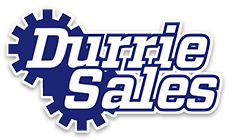One of the remarkable things about the U.S. manufacturing sector is its resiliency. We’ve seen this in recent years as worldwide supply shortages, energy crises, and other challenges have caused one market disruption after another. And the manufacturing industry has bounced back time and again.
Recently, the news seems to be dominated by speculation that we’re approaching — or may already be experiencing — a downturn. Even in an industry as resilient as manufacturing, the word “recession” causes concern.
But no matter how challenging the market environment gets, there are steps manufacturers can take to maintain or even improve their current sales.
After years in the business, we’ve seen which strategies work. Here’s what you can do.
Adjust Your Selling Process to Adapt to a Changing Market
Even under ideal economic conditions, the market is in a constant state of flux. Shifts in demand mean that a product that sells well today may stop selling tomorrow.
Your selling process should be flexible enough that it can quickly adapt to these changes.
The good news is that you already have data that can give you clues where to go next. Ask yourself: Where are you currently seeing the most growth? Where do you see the highest demand in the market, and which of your products can meet it? Or, if what you make doesn’t fit with market demands, what new products can you manufacture that will?
If you can’t answer these questions, it may be a sign that you’re viewing your market too broadly. Instead of looking at your customers as a whole, try breaking them out into narrower segments. This segmentation may further reveal smaller trends in the market that help you determine where you fit in.
You should also look beyond your own data and communicate with your whole supply chain, industrial manufacturers’ representatives (IMR), distributors, and end users. This kind of communication is key, because it will help you better understand the end users of your products and find new opportunities to help distributors sell them. Developing these relationships is a way to stay ahead of trends in the market and take advantage of opportunities when they arise.
Shore Up Your Support for Your Sales Team
You’re great at making your products, and your sales team is great at helping you sell them. If you’re working with an IMR, it’s important to support them as much as you can.
As a part of your sales team, your IMR understands the marketplace and how it behaves. They know where the competition is tight and where you have a chance to stand out. If you’d like to be doing more business, your IMR can provide valuable field intelligence that helps you achieve your goals. Beyond providing your product specs, you should also maintain clear and open channels of communication to provide the data they need.
Finally, once your IMR has what they need and you are both on the same page, you should trust them to go do their job. Your time is too valuable to spend babysitting sales reps — and you shouldn’t have to. Trust their judgement, give them permission to exercise initiative, and provide support when they ask. Follow these guidelines, and you’re sure to see better results.
Don’t Be Afraid to Share Information
In the days before Amazon, it wasn’t uncommon for manufacturers to keep product data under wraps. That might have worked once upon a time, but with the advent of online sales on an industrial scale, that’s no longer a winning strategy. It’s just not possible to compete if you’re not willing to share your product attributes with the market.
Distributors also rely on having access to that information — they’re expected to share those details on their own websites, and it discourages sales when they can’t.
As a manufacturer, share as much information as you can. That includes things like product specs, videos, and access to inventory via a distributor portal. In today’s world, those kinds of assets play a huge role in driving sales. The same goes for your marketing materials. When you provide design files, logos, and other marketing assets to your distributors, you’re making it easier for them to sell your products. Once they see you’re an invested partner in the sales process, they’ll want to help you sell more.
How An IMR Can Help
The role of an IMR is to help you sell what you make. A good IMR can help you get more attention from distributors and end-users, build your brand’s reputation, and improve customer satisfaction. Outsourcing your sales to an IMR can be a powerful, effective way to get your products into more markets.
At Durrie Sales, we have the relationships and the experience to help you stand out to more customers. If you want to find out how we can help you maintain your sales — even in a declining market — please contact us today.


